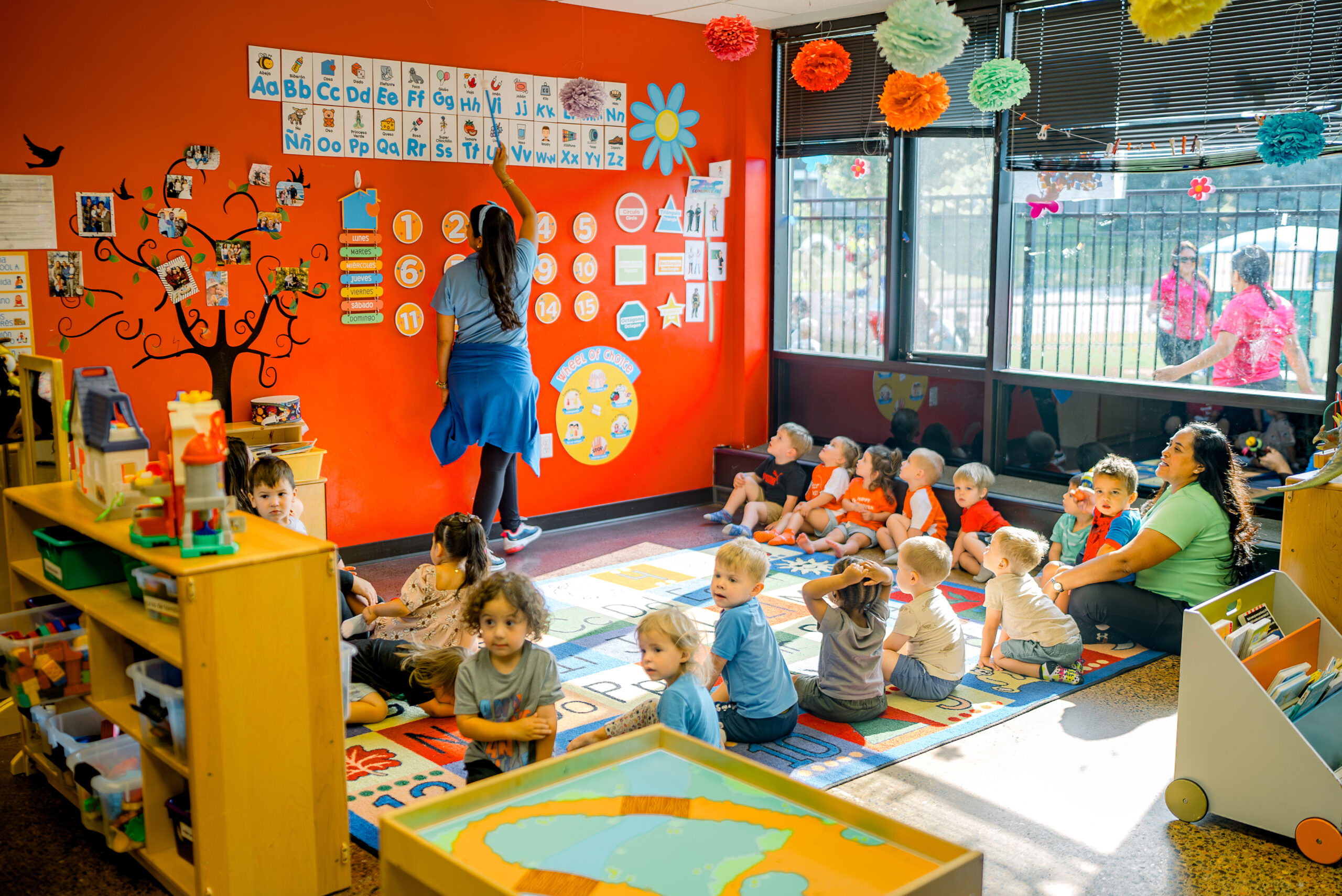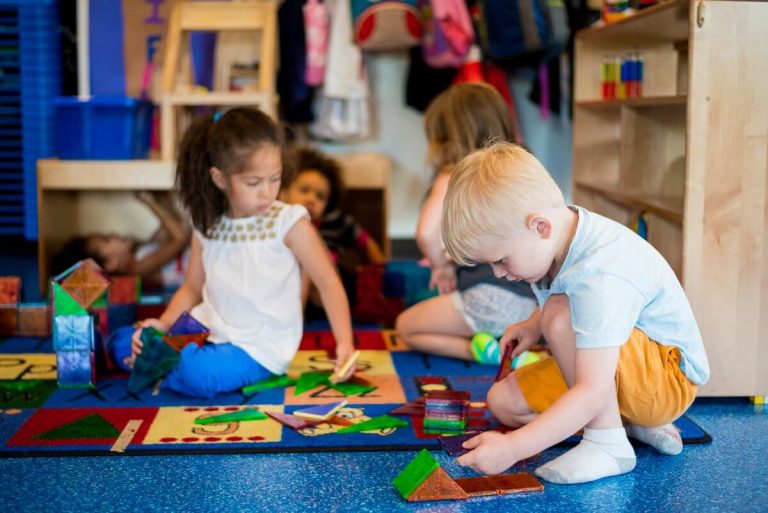What to Look for in a Daycare: A Complete Guide to Choosing Quality Childcare

Deciding on the right daycare for your child is a major responsibility that requires careful thought. From licenses, safety standards and curriculum to food programs, enrichment activities and inclusivity, there is a lot to consider.
It is not just about finding a convenient location close to home or the office, it is about ensuring your child is in an environment where they can thrive and grow socially, emotionally, and academically. Since every family’s needs are different, it is important to choose a daycare that aligns with your budget, values, and future goals for your child.
The following guide is designed to help you navigate the process of finding a daycare. It highlights key considerations and questions to ask so that you can make an informed decision that is right for your family.
Understanding Your Daycare Options
There are a few types of daycare options to consider – in-home, center-based, language immersion or other specialty programs. Within each of these options, there might be infant, toddler, or preschool programs that provide different offerings.
- In-home daycare: Childcare offered in a professional caregiver’s home or private residence, providing a more home-like environment for children. In-home daycare typically has a smaller group of children to care for.
- Traditional daycare and preschool centers: A licensed childcare facility that is either privately owned or run by a nonprofit. Traditional centers usually serve a larger number of children who are grouped into different classrooms or programs by age and have more staff to provide care.
- Language immersion daycare and preschool: A childcare program with specialized care and a curriculum tailored to helping children learn more than one language from an early age.
Look Out for Safety and Security Standards
Safety should be a top priority when selecting a daycare. Adequate safety standards create a protective space for your children and provide peace of mind for you as a parent.
Appropriate childproofing measures are essential to prevent accidents and injuries. Keep an eye out for proper childproofing including electrical outlets and furniture.
Equally important are emergency preparedness plans, which ensure there are various safety protocols in place and that staff are professionally trained to handle crises.
Ask about Licensing, Credentials and Accreditation
When exploring childcare facilities, it is important to check for credentials such as state licensing and accreditations. These credentials are essential and ensure daycares meet critical health, safety, and educational standards.
Accredited daycares, such as those recognized by the National Association for the Education of Young Children (NAEYC), are held to strict standards, and can provide a safer, higher quality experience for your child as opposed to unlicensed centers and providers.
Evaluate Staff Qualifications & Ratios
Qualifications and certifications of daycare staff are also an important consideration when finding a daycare center for your little one. In Minnesota and Wisconsin, daycare staff must complete background checks and meet specific requirements including health and safety trainings, early education certifications, and more.
At Casa de Corazón, we are also committed to the ongoing education and perpetual growth of our staff. We invest in our teachers by offering training opportunities and professional development through our Corazoncitos Training program.
Another important consideration is ideal staff-to-child ratios. Lower ratios help ensure that children receive more attention from providers. In Minnesota, the staff-to-child ratios and largest group sizes are:
| Age category | Adult/Child ratio | Maximum group size |
| Infant | 1/4 | 8 |
| Toddler | 1/7 | 14 |
| Preschooler | 1/10 | 20 |
Understanding the Daycare’s Curriculum and Learning Approach
Understanding the curriculum and ensuring that it aligns with your child’s learning style, abilities, and your own parenting approach is important. The right curriculum and teaching strategies can have a significant impact on your child’s emotional and social development.
Play-based learning, for instance, encourages creativity and fosters social skills while structured activities are key for developing focus and responsibility. And language-immersion programs can expand children’s worldview.
We focus on research-based teaching strategies at Casa de Corazón. Using NAEYC-accredited curriculum, we prioritize child development and foster learning through effective use of time, play materials, self-initiated learning, and creative expression.
Assess the Daycare’s Daily Routines and Schedules
A well-balanced routine is important for early childhood development. In addition to balance, a consistent routine brings stability and predictability to children’s days, which in turn can help them thrive.
A typical daycare may split the day up between rest, play and learning activities. The Casa de Corazón Enrichment Program offers year-round activities that support growth and discovery, including cultural celebrations, family appreciation events and more.
Nutrition and Meal Plans at Daycares
When it comes to nutrition and meal plans, it is important to consider whether the daycare offers healthy and balanced meals that cater to the dietary needs or restrictions of your child.
What sets top-tier daycares apart is a commitment to natural, organic food options that support physical and cognitive health, like Casa de Corazón’s own food program. You may also want to consider any policies on snack and mealtime supervision, which can help promote good eating habits and routine.
Facility Cleanliness & Hygiene Practices to Consider
Finding a daycare that prioritizes cleanliness is essential to your child’s health and well-being. Quality daycare facilities will have extensive hygiene practices including faculty hand washing procedures and regular sanitization of toys, surfaces, and high-traffic areas to prevent the spread of germs among staff and children.
Ensuring a daycare incorporates hygiene into daily routines makes a significant difference in supporting a clean, healthy environment for your child. Sick policies and how caregivers handle sick children are also crucial factors to consider.
Communication with Parents
Many daycares have their own approach to communication, from send-home newsletters to innovative mobile apps. Finding a daycare that offers communication methods that align with your needs and expectations can help you feel involved and reassured about your child’s experience.
When touring and interviewing daycare facilities, ask about how they keep parents informed, involved, and what tools they use for active communication. For example, Casa de Corazón’s Casa app gives a convenient way for parents to stay connected.
Other forms of daycare communication may include daily reports, photo updates, newsletters, or parent-teacher conferences.
Child Behavior Management Strategies
Selecting a daycare whose behavior management strategies align with your own parenting style is important to ensuring consistency for your child. Disciplinary approaches, conflict resolution techniques and other policies and reinforcement styles are all things to consider.
At Casa de Corazón, for example, some of our behavior management approaches include helping children develop the fundamental building blocks to foster healthy relationships and teaching coping skills for winning and losing.
Research the Daycare’s Reputation, Reviews and Staff Turn Over
A daycare’s reputation can indicate whether it is the right choice for you and your family. A few ways to gather information include:
- References: Speaking to other parents whose children currently attend the daycare
- Online reviews and ratings: Websites like Yelp, Google Reviews or specialized childcare platforms can provide insights into a facility’s reputation
- Awards and recognition: Local or national awards are a good indicator of quality care
- Staff turnover: Staff retention and feedback from past and current employees can help you gain a better understanding of the kind of care offered at a daycare
Most states and territories have childcare quality ratings. These can help you find programs that meet higher standards and help you compare the quality of different programs.
Inclusivity and Cultural Sensitivity
A daycare that welcomes diversity and fosters inclusivity can enhance your child’s experience. Ensuring you select a daycare where every child feels valued and supported no matter their needs and abilities is crucial. Exposing children to new cultures, languages and traditions from an early age can help them develop open-mindedness, kindness, and awareness.
At Casa de Corazón we emphasize the importance of interculturality through our staff and curriculum. By offering bilingual education, we not only provide a rich learning experience, but support a culturally diverse and inclusive learning environment.
Questions to Ask When Looking for a Daycare Facility
Is there a waitlist? Daycares can have limited spots. Knowing if there is a waitlist can help you plan and indicate whether a facility is in demand.
What is the cost of tuition? Are there added fees? As one of the largest expenses for families, it is crucial to find a place that fits within your budget. Understanding baseline costs for daycare plus added fees for materials, special programs or field trips can help you budget effectively.
How many children are cared for at once? Class sizes and student-to-teacher ratios can affect how much attention your child receives.
What is the expected involvement from parents? Some daycares support parental involvement through events and other opportunities. Understanding the level of participation needed or encouraged can help you plan.
What is your philosophy on childcare? Daycares vary in their approach to childcare. Make sure you select somewhere that aligns with your own parenting style and what you envision for your child’s growth and future.
What are your policies toward immunizations? Knowing what immunizations are required ensures your child is prepared for daycare and that their safety around other children is also prioritized.
What are your health requirements for employees? Checking what requirements daycares have for staff vaccinations and sick policies is also important in ensuring your child is in a healthy environment.
Red Flags to Watch for When Choosing a Daycare
Pay attention to red flags as you explore and evaluate daycare options.
- Lack of proper licensing or accreditation: If a daycare is not licensed or accredited, it may not meet essential safety or educational standards.
- High staff turnover: Frequent staff changes may indicate poor management and working environment. Inconsistency in caregivers may also make it harder for children to develop stable relationships.
- Unhappy or unengaged children or staff: Unhappy or disengaged children and staff may indicate negative atmosphere or poor care.
- Poor or unprofessional communication: Lack of proper communication can leave parents uninformed about their child or any changes in care.
- No structured curriculum: Without structured curriculum, children might miss valuable learning opportunities.
- Limited or no access to the facility: Restricted access for parents could suggest issues with transparency or staff supervision.
- Limited or negative parent reviews: Bad or limited reviews from other parents may be a sign of poor care quality.
- No staff background checks: Daycares that do not conduct staff background checks risk hiring unqualified or unsafe individuals.
- Lack of clear policies and procedures: Absence of clear policies surrounding things like discipline or emergencies could suggest lack of structure and inconsistent care.
- Unclean facilities: Lack of proper hygiene standards can lead to dirty environments and risk of illness.


